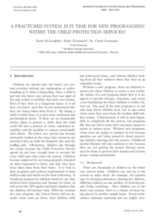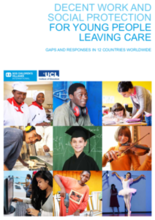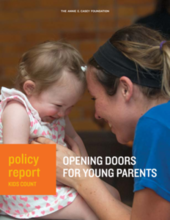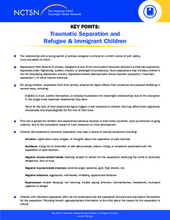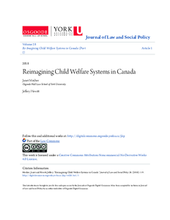This page contains documents and other resources related to children's care in the Americas. Browse resources by region, country, or category.
Displaying 961 - 970 of 1438
This article explores current child protection services and programs in the United States and offers suggestions for development of new child protection programming to further meet the needs of vulnerable children.
This paper identifies key educational outcomes among young people in care in Ontario (Canada) of pre-school, elementary, secondary, and post-secondary age.
The purpose of this study was to understand the perspective of caregivers about the formation and disruption of bonds with institutionalized children in Brazil.
The aim of this report from SOS Children's Villages is to increase the knowledge and understanding of the needs and rights of young people ageing out of alternative care around the world, in order to inform strategies, policies and services to improve their life chances and outcomes through appropriate preparation for leaving care as well as after-care support.
This presentation explores the developmental assessment of young children living in out-of-home care using the Ages and Stages Questionnaires® Third Edition.
This report from the Annie E. Casey Foundation reminds policymakers and child advocates in the US of the barriers that young families face. It examines national and state-level trends — highlighting areas of opportunity and concern — and then shares potential solutions that can help these families thrive.
This article from Children's Legal Rights Journal discusses the statistics and data regarding foster youth who are commercially exploited for sex, and examines the various reasons why foster care children represent such a large proportion of the victims.
This resource from the National Child Traumatic Stress Network provides key points related to traumatic separation and immigrant and refugee children, adapted from the NCTSN fact sheet Children with Traumatic Separation: Information for Professionals.
This study sought to understand parents' experiences of the supports and barriers to engagement in an evidence‐based parenting intervention (EBPI).
This article introduces Volume 28 of the Journal of Law and Social Policy which focuses on racism and overrepresentation of indigenous and ethnic minority children and youth in the social welfare systems.


